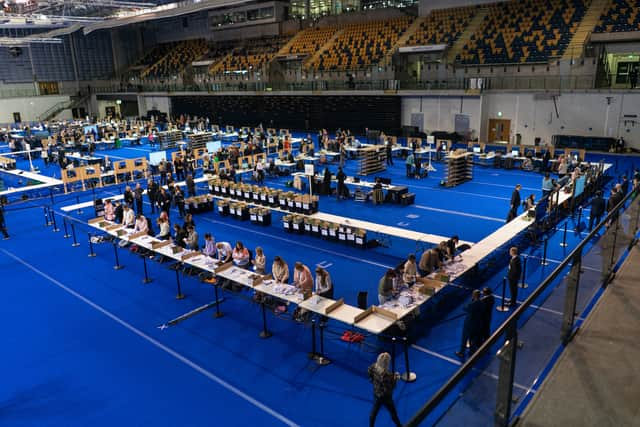Call for action after over 4800 Glasgow election ballots rejected
and live on Freeview channel 276
The highest number of ballots were thrown out in the Canal ward, with 346 slips rejected.
Problems arose as residents failed to fill out the ballot papers in the correct manner – leading to a total of 4,870 spoiled ballot papers following Friday’s count at the Emirates arena.
Advertisement
Hide AdAdvertisement
Hide AdSNP councillor Allan Gow who represents the Canal ward called for action to tackle the problem on social media.


Councillor Gow said he has written to the Electoral Commission “asking them to take steps to advise those electors whose ballots were rejected on how to vote correctly next time.”
He added: “Over 35,000 people across Scotland left the polls last Thursday feeling they had taken part in the election and had chosen their preferred candidates. They went home satisfied that they had played their part. Sadly, their ballots were rejected. This is unsustainable particularly in the context of low turnouts. We need action.”
Other wards with high voting slip rejections included Langside with 239, Springburn/ Robroyston with 252, Greater Pollock with 269, Garscadden, Scotstounhill with 293 and Southside Central with 296.
Advertisement
Hide AdAdvertisement
Hide AdTwo areas with fewer spoiled ballot papers included Hillhead with 73 and Victoria Park with 84.
Most of the ballot papers had to be dumped because the figure “1” indicating a first preference was set opposite the name of more than one candidate.
The local election used the single transferable votes system.
Comment Guidelines
National World encourages reader discussion on our stories. User feedback, insights and back-and-forth exchanges add a rich layer of context to reporting. Please review our Community Guidelines before commenting.